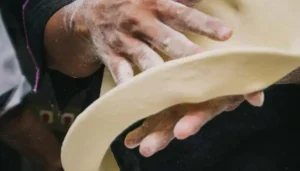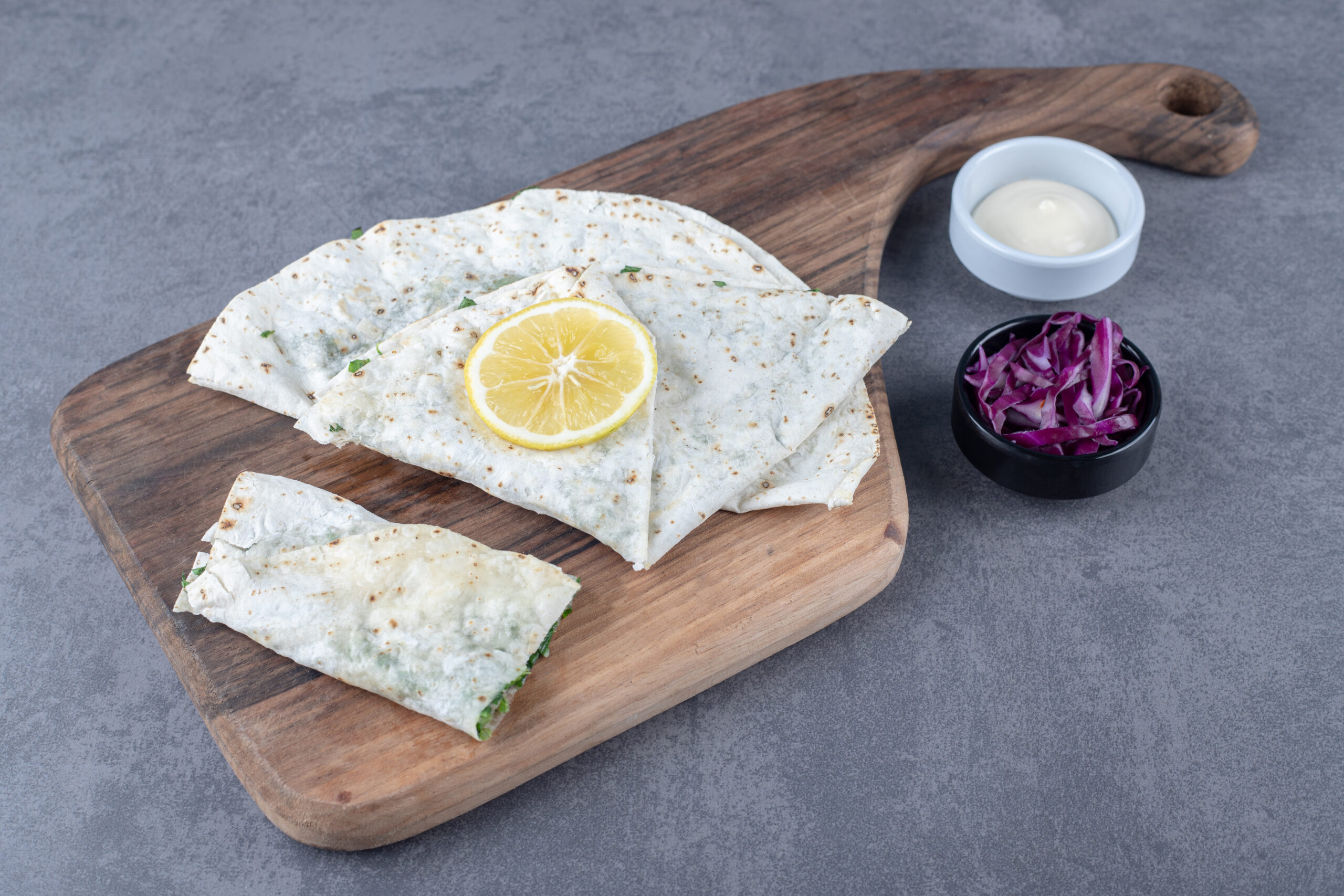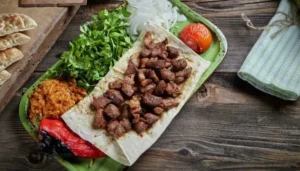Imagine the aroma of fresh, warm bread filling your kitchen—its soft texture and subtle flavor calling out to be paired with your favorite dishes. This isn’t just any bread; this is lavash bread, a culinary treasure of Armenian heritage. Whether you’re curious about its origins, eager to recreate its magic at home, or looking for new ways to enjoy it, you’ve come to the right place.
In this guide, we’ll explore the fascinating history of lavash, teach you how to make it step by step, and explore its many uses in traditional and modern cuisines. Let’s get started on this flavorful journey!
What Is Lavash Bread?
Lavash bread is a thin, soft flatbread that has been a staple of Armenian cuisine for centuries. Its simple ingredients—flour, water, and salt—combine to create something extraordinary. Recognized by UNESCO as an intangible cultural heritage, lavish is more than just food; it symbolizes connection, community, and tradition.
What makes lavash unique is its versatility. Whether you use it as a wrap, a side dish, or even a dessert base, its neutral flavor complements just about anything. Soft when fresh and crisp when dried, lavash can adapt to your needs, making it a kitchen essential.
The Origins and History of Lavash
Cultural Importance in Armenia
In Armenia, lavash isn’t merely a type of bread; it’s a cultural cornerstone. Historically, families would gather to prepare lavash in large batches, baking enough to last for months. This communal activity strengthened family bonds and celebrated the art of bread-making.
Lavash often takes center stage at Armenian weddings, symbolizing prosperity and abundance. You’ll also find it in religious ceremonies, reflecting its deep spiritual significance.
The Art of Tonir Baking
Traditionally, lavash is baked in a tonir, a clay oven embedded in the ground. The dough is slapped against the hot walls of the oven, where it bakes to perfection in just a couple of minutes. This unique method gives lavash its characteristic texture and flavor—a combination of smoky and slightly charred notes.
Today, while many people use modern ovens or skillets to make lavash, the tonir method remains a revered practice in rural Armenian villages.

How to Make Authentic Lavash Bread at Home
Craving the authentic taste of lavash? Thun’s how you can make it in your own kitchen.
Ingredients Needed
Let’s start with the basics. Here’s a simple list of what you’ll need:
| Ingredient | Quantity | Notes |
|---|---|---|
| All-purpose flour | 4 cups | Sifted for a finer texture |
| Water | 1 ½ cups | Warm for easier mixing |
| Salt | 1 tsp | Enhances flavor |
| Yeast (optional) | ½ tsp | Adds softness if desired |
Step-by-Step Instructions
- Mix the Dough
Combine the flour, salt, and yeast (if using) in a large bowl. Gradually add the water, mixing until the dough comes together Work the dough for 8–10 minutes until it’s smooth and stretchy. - Rest the Dough
Drape a damp cloth over the dough and let it rest for an hour. This gives the gluten time to soften, ensuring the dough rolls out effortlessly.
- Roll It Thin
Divide the dough into small balls. Using a rolling pin, flatten each ball into a thin sheet. The thinner, the better! - Cook Your Lavash
Heat a skillet or griddle over medium heat.Place the rolled- out dough onto the hot face. Cook for about 1 – 2 twinkles on each side until light brown spots appear. - Cool and Store
Let the lavash cool on a wire rack. For longer storage, keep it in an airtight container or freeze it for later use.
Lavash Bread Variations and Modern Uses
Traditional Variations
Lavash can vary slightly depending on the region. Some versions are fermented for a tangy flavor, while others remain unleavened for simplicity. The thickness can also differ, ranging from ultra-thin sheets to slightly thicker bread.
Modern Culinary Uses
Lavash’s versatility makes it a favorite in contemporary kitchens. Here are some ideas to inspire you:
- Wraps and Sandwiches: Perfect for rolling up grilled meats, veggies, or spreads.
- Lavash Chips: Cut into triangles, brush with olive oil, sprinkle with seasoning, and bake until crisp.
-
- Dessert Creations: Spread with honey and nuts, then roll up for a sweet treat.
Why Is Lavash Bread So Special?
Health Benefits of Lavash
Lavash is a healthier bread option for many diets. It’s low in fat and sugar, making it a good choice for those watching their calorie intake. Plus, its simple ingredients mean it’s free of preservatives and artificial additives.
Symbolism and Community
Beyond its nutritional value, lavash carries a profound emotional weight. Its preparation brings people together, fostering a sense of unity and shared purpose. Whether baked in a traditional tonir or a modern oven, lavash remains a timeless link to Armenian culture.
FAQs About Lavash Bread
Q: What makes lavash bread different from other flatbreads?
Lavash stands out for its thinness, versatility, and traditional baking method in a tonir. Its soft texture when fresh and crispiness when dried make it unique.
Q: Can you freeze lavash bread?
Absolutely! Wrap it firmly in plastic wrap or thwart, and store it in the cooler for up to three months. Defrost at room temperature when prepared to utilize.
Q: Is lavash bread gluten-free?
Traditional lavash is made with wheat flour, so it’s not gluten-free. However, you can find or make gluten-free versions using alternative flours like rice or almond flour.
Q: How long does lavash bread last?
Conclusion
Lavash bread is more than just a recipe—it’s a journey into the heart of Armenian tradition. Whether you’re savoring it fresh out of the skillet, using it as a wrap, or experimenting with modern variations, lavash offers endless possibilities.
Now that you know its history, cultural significance, and how to make it, why not try baking your own batch? Share it with friends and family, and experience the magic of this timeless bread together.
Call-to-Action:
Ready to bring a taste of Armenia to your kitchen? Gather your ingredients, roll up your sleeves, and start making authentic lavash bread today. Don’t disregard to share your manifestations on social media and tag us for a chance to be highlighted!


